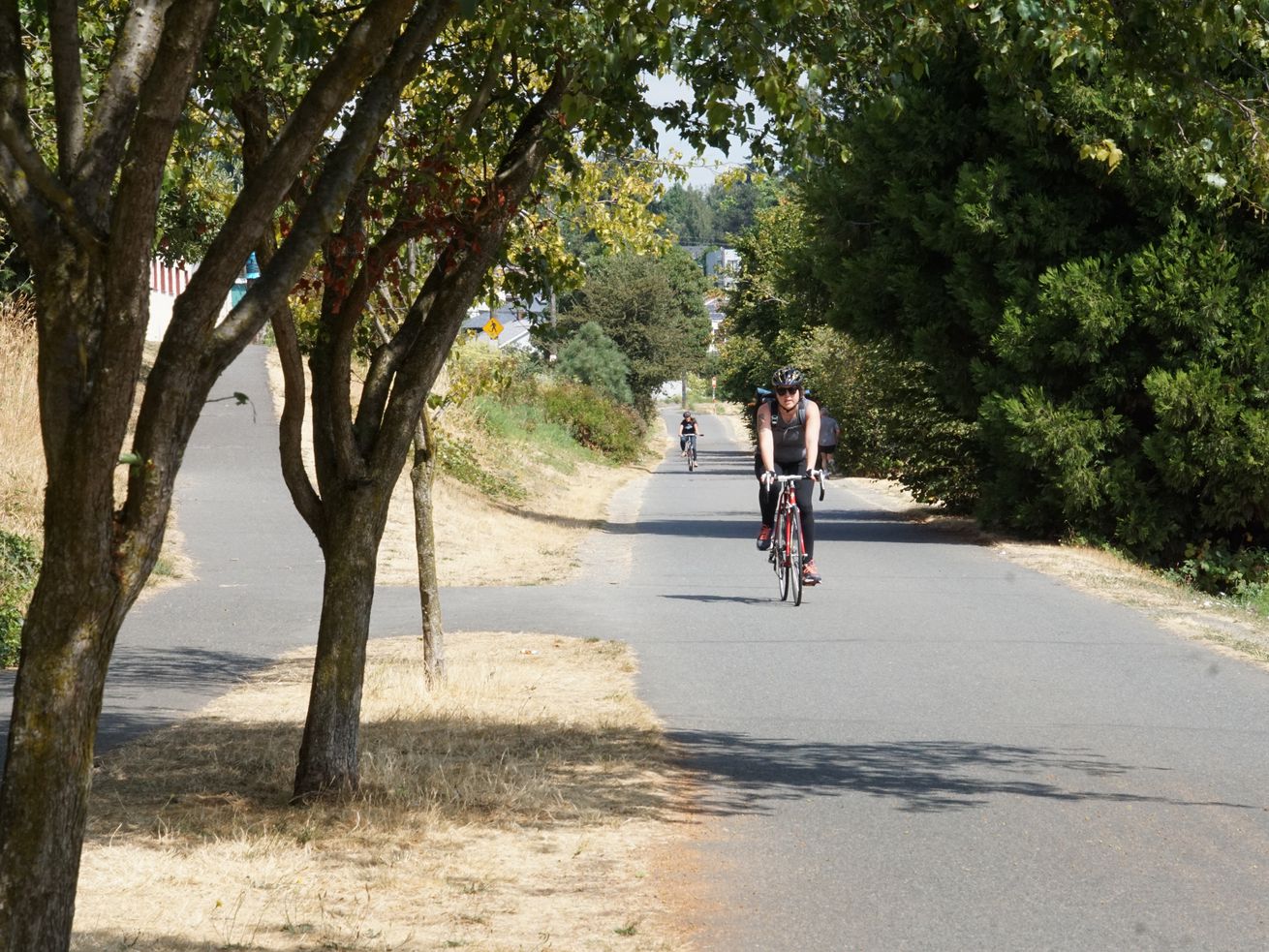
A pilot program would allow some kinds of electric-assist bikes on five local trails
The Seattle Board of Park Commissioners is set to vote Thursday on a pilot program that would allow certain kinds of electric-assist bikes on five multi-use trails. But the fastest e-bikes will still have to stick to the streets—and slower e-bikes will still have to follow a speed limit.
A recent change in Washington State law that paved the way for this pilot laid out three categories for electric bikes: “Class 1” electric bikes, which pedal-assist up to 20 miles per hour; “Class 2” electric bikes, which can be motor-propelled up to 20 miles per hour; and “Class 3,” which can be assisted above 20 miles per hour.
Under the pilot, which will last for one year, Class 1 and Class 2 e-bikes would be allowed on the Burke-Gilman Trail, Elliott Bay Trail, Mountains to Sound Trail, Melrose Connector Trail, and Duwamish Trail, provided they stick to a speed limit of 15 miles per hour—a speed that is often reached by non-electric bikes, too.
During that period, Seattle Parks and Recreation will work with the city and state departments of transportation to gather data on trail use and safety, using one trail not in the pilot, the Alki Trail, as a control. A large part of this data collection is the installation of trail counters, but it could also include speed trackers. Online and in-person surveys will capture self-reported use and opinion data. Toward the end of the pilot, Parks will conduct focus groups and open another public comment period.
If the pilot project passes Thursday’s board vote and gets approval from Interim Superintendent Christopher Williams, it’s set to begin on August 1. After a year of data collection and trail use, Parks will evaluate the program and present a more permanent recommendation to the board.
Blake Trask, senior policy director for Cascade Bicycle Club, praised the program as “an opportunity to open up real transportation possibilities in our city” for “families and folks that don’t always think about using a bicycle, particularly older individuals.”
“This really opens up possibilities for people who would otherwise like to be on a bike but feel intimidated to do so,” added Trask.
Mike Radenbaugh, CEO of local e-bike company Rad Power Bikes, also—understandably—supports the proposal. “Riding an e-bike on a trail doesn’t make the trail less-safe for regular cyclists or pedestrians,” said Radenbaugh, adding that “it would be dangerous and unfair to force e-bikes onto regular streets where there are 4,000-to-6,000-pound vehicles traveling at very high speeds.”
There has been some fear surrounding increased access for e-bikes on trails, though, however slow the bicycles may be going. Writing for Crosscut, former Washington State Secretary of Transportation Doug MacDonald likened the rule change to an invasion.
Originally, the pilot was scheduled to begin on Memorial Day, but at April’s board meeting the pilot was delayed and pushed to a July vote. The parks board is scheduled to vote on the pilot at its meeting this Thursday, July 12 at 6:30 p.m.
- Seattle Board of Park Commissioners Invites Community Input on the Multi-Use Trail Pilot Project [SPR]
- Washington State laws governing electric bicycles are changing [CS]
This article has been updated to clarify that MacDonald is the former Secretary of Transportation.


